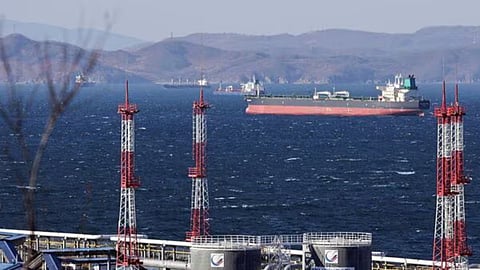

India will not halt its oil purchases from Russia despite Donald Trump’s recent threats of penalties, senior Indian officials told select media agencies on Saturday. The officials, who declined to be named due to the sensitivity of the matter, said there had been no change in policy or directives to oil companies.
Trump had suggested on Friday that India might stop buying Russian oil, saying: “I understand that India is no longer going to be buying oil from Russia… That is a good step. We will see what happens.” The claim followed his earlier announcement of sweeping 25 percent tariffs on Indian exports to the US, and a warning of further penalties for nations importing energy or arms from Russia.
However, multiple Indian government sources contradicted Trump’s claim, stating that supply decisions are based on commercial and logistical considerations. “These are long-term oil contracts,” one official said. “It is not so simple to just stop buying overnight.”
A second official argued that India’s continued purchase of discounted Russian crude helped stabilise global oil prices. “If we hadn’t absorbed that oil – especially with the OPEC+ production cuts – prices could have surged beyond the March 2022 peak of $137 a barrel,” the official said.
Foreign ministry spokesperson Randhir Jaiswal, in a routine press briefing on Friday, reiterated India’s pragmatic approach: “We look at what is there in the markets, what is on offer, and also the prevailing global circumstances… India has a steady and time-tested partnership with Russia.”
Despite rising tensions with Washington, Indian oil imports from Russia remain substantial. Russia was the top supplier to India from January to June, accounting for around 35 percent of the country’s total crude imports – roughly 1.75 million barrels per day.
Nevertheless, public-sector refiners – including Indian Oil Corp, Bharat Petroleum Corp, Hindustan Petroleum Corp, and Mangalore Refinery and Petrochemicals – reportedly paused new purchases of Russian oil in late July after discounts narrowed to their lowest since sanctions were first imposed in 2022. No new Russian crude cargoes had been sought in the past week.
Meanwhile, Nayara Energy, a private refinery in India majority-owned by Russian interests, is facing operational hurdles following recent EU sanctions. Reuters reported that three of its vessels carrying refined products had yet to offload, and that the company’s CEO had resigned after the new restrictions came into force.
Trump, who has made ending the Ukraine war a centrepiece of his foreign policy, has threatened to impose 100 percent tariffs on countries that continue to buy Russian oil unless Moscow agrees to a peace deal by August 8.
Despite Trump’s pressure, officials in New Delhi maintained that India’s oil purchases were fully compliant with international rules. “Russian oil is not directly sanctioned by either the US or EU,” said one source. “It is sold under the G7-EU price cap mechanism, which ensures that supplies continue to flow without funding the Russian war effort excessively.”
India, the world’s third-largest energy consumer, argues that it must secure affordable energy for its population. “Our decisions are guided by energy security, economic factors and the best available options in the global market,” one official said.